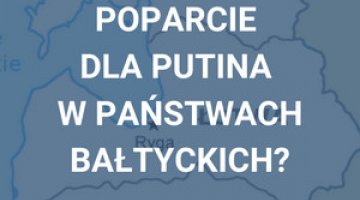Lithuania: A new government coalition with the participation of the Polish minority party
A new coalition agreement was signed in Lithuania on 5 July. The two groupings which have co-governed the country so far are: the Lithuanian Farmers and Greens Union (LVŽS) and the Social Democratic Labour Party of Lithuania (LSDDP). They now have two new partners: the Order and Justice (TT) party and the Electoral Action of Poles in Lithuania-Christian Families Alliance (LLRA–KŠS). Saulius Skvernelis, a nominee of the LVŽS, will continue to serve as the prime minister. The party of the Polish minority, which holds eight seats in the parliament, was the last to join the coalition, doing so after the coalition partners had accepted its social demands. Owing to the participation of the LLRA–KŠS, the government coalition in Lithuania has a majority in the Seimas (the unicameral parliament of Lithuania) for the first time since autumn 2017 (it has 76 of the 141 seats).
LVŽS, which has the largest number of members of parliament, will be in charge of nine ministries in the updated government. LSDDP will control two ministries – the Ministry of Foreign Affairs (it has been announced that Linas Linkevičius will continue to head of this ministry) and the Ministry of Agriculture. A representative of this party will also replace Viktoras Pranckietis from LVŽS as the speaker of the Seimas. The Order and Justice party has gained the position of the Minister of Defence and has announced that the present minister, Raimundas Karoblis will be dismissed. LLRA–KŠS, which will be a member of the government coalition in Lithuania for the fourth time, has been put in charge of as many as two ministries: the Ministry of Internal Affairs and the Ministry of Transport and Communications.
The agenda of the centrist coalition has a strong social component partly as a result of demands from LLRA–KŠS which wants a family support programme to be introduced in Lithuania modelled on the Polish government’s programme. Politicians have undertaken to increase spending on social insurance to a level of the European average within a timeframe of five years. Support for families includes an offer of free school dinners (including at preschools), a raise in child benefits to 70 euros a month (and additionally 30 euros for families with many children and with low income), pregnancy benefits, and no tuition fees for bachelor’s studies. The government has also promised free basic medicines for elderly citizens. In addition to enhancing social support, the government also intends to conduct judicial vetting and enhance the road financing programme. It has also been agreed than an additional income tax rate will be introduced.
Commentary
- The previous minority coalition has been enlarged in order to ensure greater stability to the Skvernelis-led government until the election in autumn 2020. The coalition partners wanted to reach an agreement before 12 July, i.e. the day on which the new president, Gitanas Nausėda, is be sworn in. According to the constitution, the prime minister cedes his authority to the new president, expecting to be nominated again. The new coalition agreement is an argument against the idea of holding a snap parliamentary election which was being considered by a section of the MPs and by Nausėda. The possibility of scheduling a snap election began to be discussed in the Seimas when the main party in the government coalition, the LVŽS, lost the local election in March and the presidential and the European elections in May.
- The strengthening of the coalition needs also to be viewed as the groupings which form it preparing for the campaign ahead of the parliamentary election in 2020. The results of the local election revealed the Lithuanian public’s disillusionment with the political elites (public election committees won). Among the political parties, the conservative Homeland Union – Christian Democrats, the key opposition grouping, is currently gaining support. The fact that a new president will take office will be beneficial for the reinforced Skvernelis government. Dalia Grybauskaitė used to back the conservatives and was in conflict with Prime Minister Skvernelis, criticising his human resources and foreign policies and the slow pace of implementing the government’s agenda. Nausėda is still building his position on the political scene and as yet does not discriminate in favour of any party, maintaining his position of an arbiter. The implementation of the pro-social agenda with reduced criticism from the head of state may contribute to increasing the Lithuanian public’s trust in the new government and the groupings that form it.
- Even though the results of the three most recent elections revealed a decline in the popularity LLRA–KŠS which represents the Polish minority, its joining the coalition as a force that ensures a majority to the government means a clear advancement for this grouping on the scale of the country. Furthermore, this grouping has never been offered such good conditions; a great part of the social demands from its pro-social agenda has been accepted and it is being put in charge of two important ministries. This party, led by Valdemar Tomaševski (Waldemar Tomaszewski) used the period of lengthy negotiations for promoting its agenda, emphasising the need to combat poverty, which affects numerous residents of Lithuania. The actions taken by LLRA–KŠS can be viewed as a new strategy of making the grouping more popular among ethnic Lithuanians, including those sharing a Christian worldview, contrasting with its previous strategy of sharing election lists with the Russian minority, which was unsuccessful and adversely affected their image. Issues concerning supporting ethnic minorities remained in the background of the negotiations – the coalition undertook to implement the guidelines set out in the Framework Convention for the Protection of National Minorities, which can be interpreted as an intention to resolve, for example, the issue of the absence of an act concerning ethnic minorities and guaranteeing state protection for the language, culture and education facilities of the ethnic minorities.
- The fact that LLRA–KŠS has gained significant influence on the country’s politics by taking control of two ministries which are important for the state’s security (the Ministry of Internal Affairs) and economic and technological development (the Ministry of Transport and Communications) will weaken the narrative which has been present in the Lithuanian media for a few years according to which this grouping is disloyal to the Lithuanian state. This narrative has also been challenged by the stance taken by President Gitanas Nausėda and by nomination of Jaroslav Neverovič (Jarosław Niewierowicz) for a presidential advisor. Mr Neverovič is ethnically Polish and served as the Minister of Energy, nominated by LLRA in the past. The president-elect has concluded that even though the parties need to deal with some internal problems (at this point he made a reference to the fact that members of LLRA–KŠS and its leader are ostentatiously wearing the ribbon of Saint George), this does not mean that the party is acting to the disadvantage of the state.





